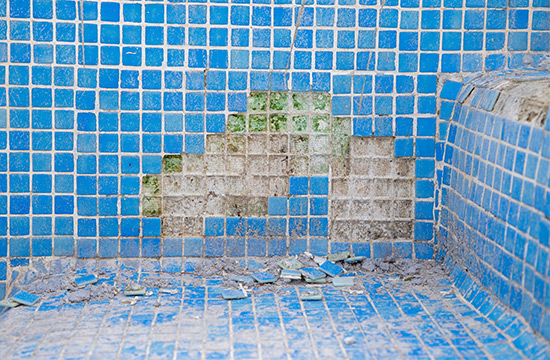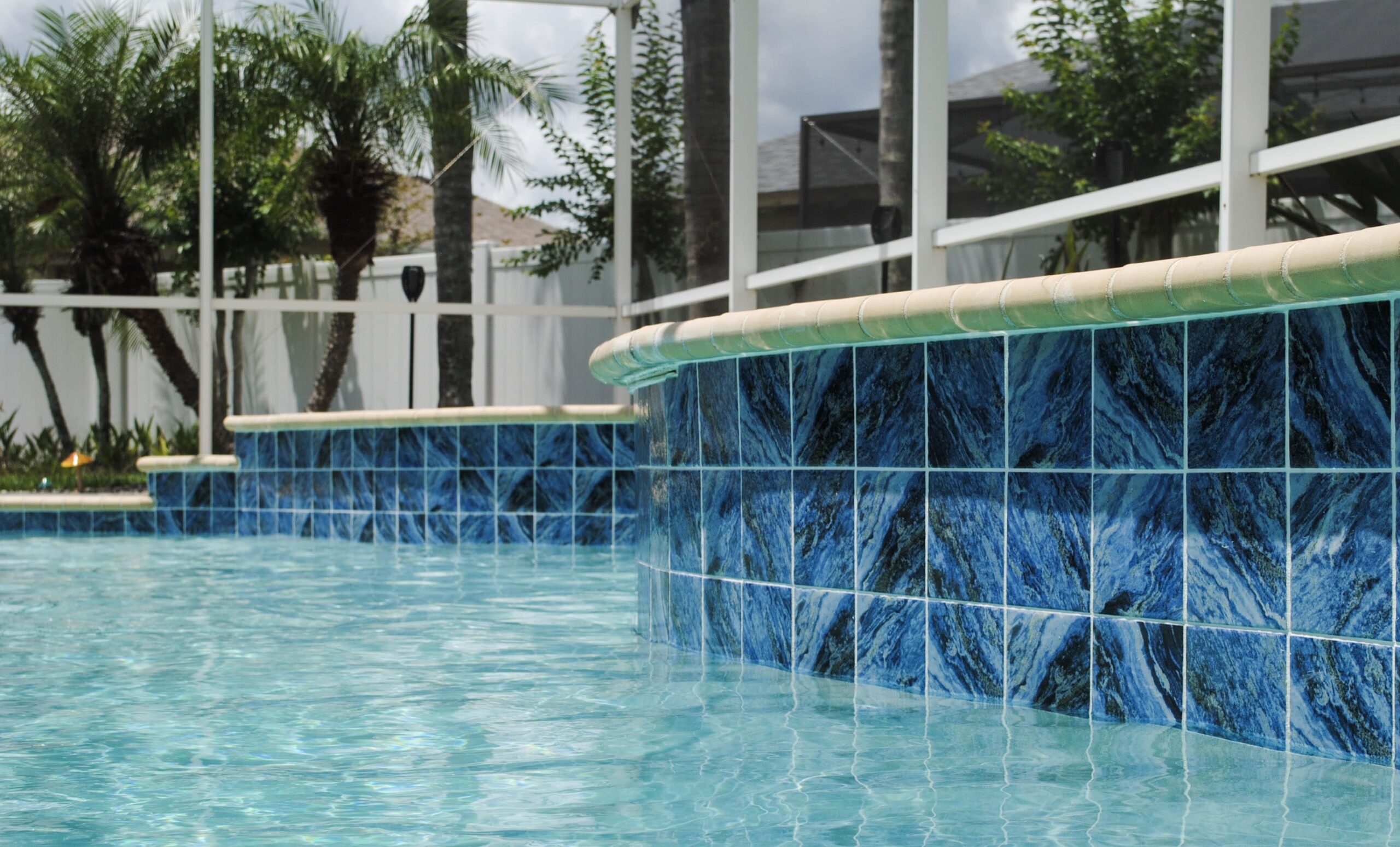How Long Does a Pool Liner Last?
Your pool liner serves the critical function of keeping your pool water where it belongs. From fitted vinyl and custom water-line tile on in-ground pools to the overlapping and J-hook liners of above-ground spas, all varieties will eventually wear out. Today, we’ll answer the question, “How long does a pool liner last?” and help you spot the signs that it’s time to repair or replace the liner of your in-ground or above-ground pool.
Signs your pool liner needs to be replaced
Before we dive into how long your pool liner should last, let’s cover the common signs that your vinyl liner is nearing the end of its lifespan:
Wrinkles and stretching
Wrinkles and folds that appear on the floor or walls of your pool are an indication of water trapped beneath the surface. This damage may be accelerated by extreme temperatures, improper installation, and normal wear and tear.
Fading or discoloration
Long-term exposure to UV rays causes pool liners to fade, taking on a dull, patchy appearance. However, discoloration can also occur due to the presence of various chemicals or improper pH levels.
Drying, cracking, or peeling
A pool liner that’s cracking, peeling, or drying out can quickly lead to leaks.

Even if you don’t see these blemishes, you may feel a rough texture or sticky spots, suggesting that the liner is deteriorating.
Cracking isn’t just a problem with vinyl pool liners. Tile and plaster pools are also prone to cracks and degradation.
Related: The Complete Solar Pool Cover Guide
How long does a pool liner last on average?
The average life expectancy of a pool liner will vary based on a number of factors. Here’s how a few popular materials stack up:
How long do vinyl pool liners last?
Cost-effective and smooth to the touch, vinyl liners are a popular choice among in-ground and above-ground pool owners. These pool liners typically last 8 to 12 years, depending on product quality and thickness, sun exposure, water chemistry, and installation quality. When it’s time to start shopping for replacement liners, look for thick, well-made vinyl. The extra expense is worth the cost.
How long does tile last in a pool?
Unlike vinyl, ceramic and glass tiles are extremely durable and resistant to chemicals and UV rays. With proper installation and waterproof grout and backing, you can expect this type of pool liner to last 30 years or more. Depending on your water chemistry and the amount of sunlight your pool receives, you may need to regrout every 10 to 15 years to prevent leaks.
How long does waterproofing plaster last?
Gunite, marcite, and whitecoat plaster typically last 10 to 20 years with proper maintenance. If you notice an unusually rough texture, staining, small cracks, or chips, you may need to replace your liner. Again, UV rays and poor water quality can take a toll on these liners.
Related reading: Resurfacing a Pool: The Process and What to Expect
How to extend the lifespan of your pool liner
Regular cleaning, maintaining proper circulation and filtration, and routine inspections can extend the lifespan of your pool liner – and your backyard enjoyment – for years to come. Here are a few other tips to help your pool liner last as long as possible:
Keep the water properly balanced
Water chemistry affects various pool liners differently. For example, acidic water can erode plaster, such as gunite, causing rough surfaces and leaks. Meanwhile, soft water with low calcium levels can actually leach this nutrient from the plaster, leading to faster degradation.
With tile pool liners, low pH erodes grout, and hard water (high calcium content) causes scale build-up. Meanwhile, these chemicals may only cause aesthetic damage to thick vinyl liners. You get the idea. So, to extend the lifespan of your pool liner, ensure that your water chemistry is properly balanced:
- pH: 7.4–7.6
- Total alkalinity: 80–120 ppm
- Calcium hardness: 200–400 ppm
- Free chlorine: 1–3 ppm
- Cyanuric acid: 30–50 ppm
Use care when adding chemicals
Many concentrated pool chemicals are unsafe for your skin, your deck, and your pool liner before dilution. Use extreme caution with chlorine and acidic chemicals as you balance your pool’s water chemistry. If concentrated solutions spill or splash, ensure the area is thoroughly rinsed with fresh water.
Be aware of sunlight and environmental conditions
While prolonged sun exposure can help control algae growth in your pool, it generally has a negative effect on pool liners, especially those made of vinyl. Beyond cosmetic changes like fading, excessive sunlight breaks down the structural integrity of liners, leading to warping and cracks.
Related: Swimming Pool Chemicals for Beginners
Maintain your pool liner and your pool with the pros at GPS Pools!
GPS Pools is your home for pool maintenance services and supplies. We handle everything from pool design and installation to custom resurfacing. Whether you’re ready to upgrade to a more durable type of pool liner, searching for a trusted team to remodel your deck, or shopping for the best products in pool care, we’re here to help!

